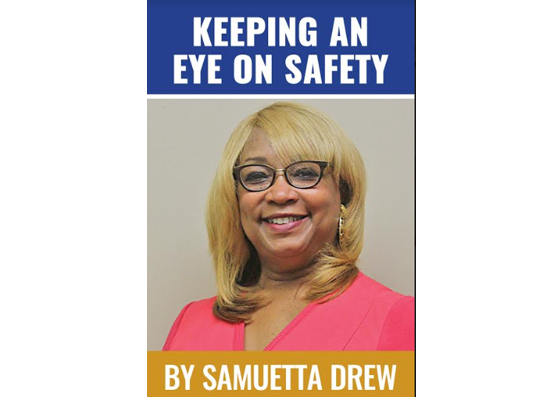By Samuetta Hill Drew
With COVID-19 numbers continuing to spiral upward at an increasingly rapid and alarming rate across the country, which includes our state where two major cities are reporting no available ICU beds, how is one to determine if they are designated as “high risk?”
With a disease where the medical and scientific communities worldwide are making revisions almost daily to reflect recent research data for this newly discovered disease, how does one know their level of risk?
Many citizens 65 years and older have determined they are at high risk. Their determination is based primarily because of age. Their determination has been influenced by news reporting which highlights COVID-19 patients 65 years and older account for eight out of 10 deaths in the U.S. They have heard, based upon research data, that risk for severe illness due to COVID-19 increases with age.
For example, people in their 50s are at higher risk for severe illness than people in their 40s. Similarly, people in their 60s or 70s are, in general, at higher risk than those in their 50s. Those at the greatest risk for severe illness from COVID-19 are among those age 85 or older.
Therefore, the question becomes is age the only determining factor that places a person in the high-risk category for contracting COVID-19? The answer is no. Yes, it is a contributing factor, but certainly not the only factor. This article will help you decide if you or a love one falls into the “high risk” category.
The Centers for Disease Control and Prevention (CDC) tells us that adults of any age with certain underlying medical conditions are at increased risk for illness from the virus that causes COVID-19. The CDC defines severe illness from COVID-19 as hospitalization, admission to the ICU, intubation or mechanical ventilation, or death.
Adults of any age with the following conditions are at increased risk of severe illness from the virus that causes COVID-19:
• Cancer
•Chronic kidney disease
• Obesity (body mass index {BMI} of 30 kg/m2 or higher, <40kg/m2
• Pregnancy
• Smoking
• Sickle Cell Disease
• Immunocompromised state (weakened immune system from solid organ transplant)
• Type 2 diabetes mellitus
As many citizens are contemplating whether to travel or attend an upcoming Christmas holiday gathering, it is essential to know your potential risk factor so you can Keep an Eye on Safety for you and your family. The upcoming articles will address additional factors to help determine the risk levels for adults and children.




